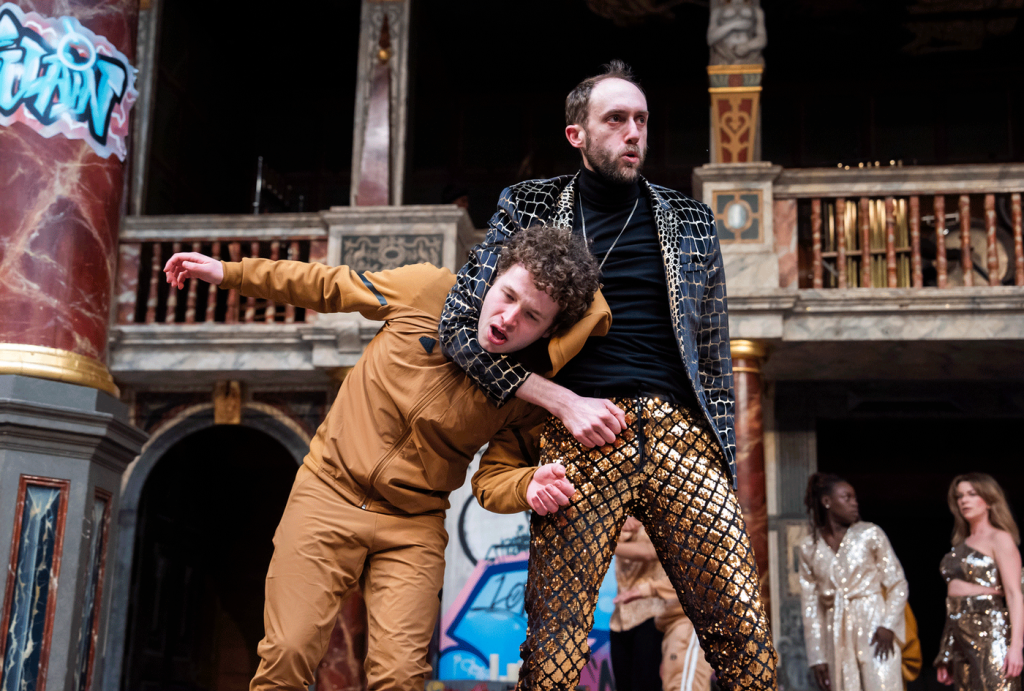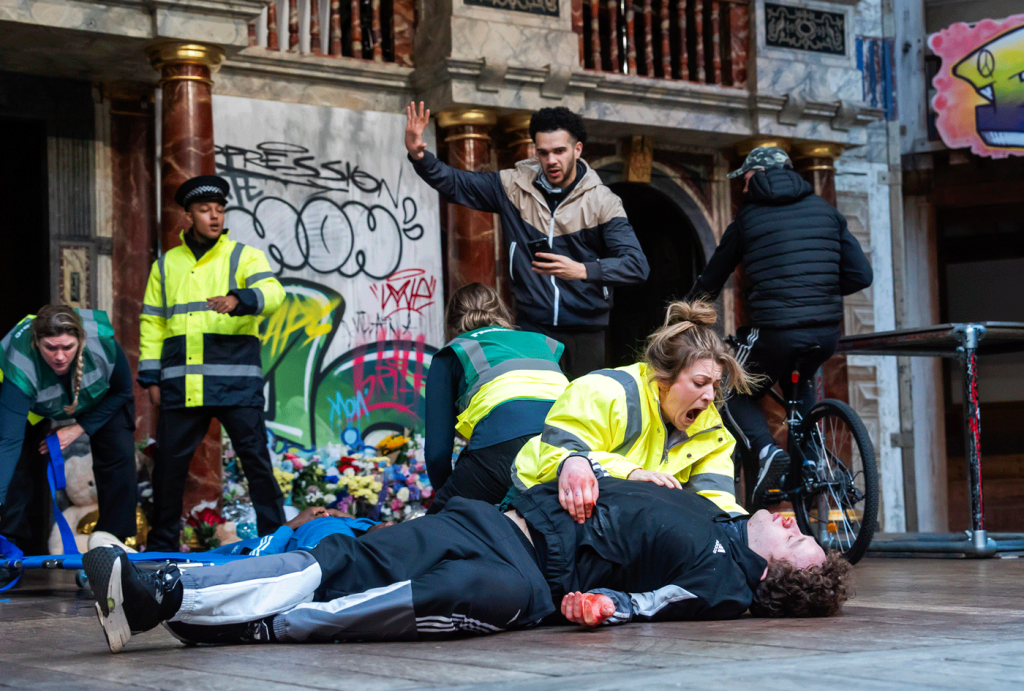Shakespeare’s immortal love story relives once again on its home stage, in a new abridged production playing the Globe’s main playhouse. Guillermo Nazara share his views on the show, to let us know if this revised montage still kisses by the book.
Ah, nothing like the drama-splattered affairs of young love to give your day that much necessary boost of unaffiliated misery. Yes, I confess it, I’m one of those who every time he sees a merry couple passing by, I raise an imaginary glass to them and smirk while thinking: “I’m gonna take your boyfriend away from you”. What? It’s just for the sake of showmanship. I mean – didn’t the Bard say that all the world’s a stage and all the men and women merely players? There we go then. I know very well who I wanna play with… theatrically speaking.
Moving on. The tale of the two lovers condemned to the contentious maneuvers of a capricious fate has been reimagined so many times, it’s almost surprising people are still enraptured by its tragic plight . But I guess it takes one b*tch to know another, huh? A delightful, intricate piece about the most basic yet incredibly complex feelings anyone could ever experience, Romeo and Juliet has always been part of my top list of Shakespeare’s faves – both plot and writing style becoming a source of inspiration and bewilderment all the way back to high school. I was… popular…
Attempts at modernizing the over 400-year-old work have not been scarce, with the Bernstein-Sondheim musical remake being perhaps the most popular in the last decades while also gaining an identity on its own. Yet, the possibilities are still out there for those who wish to look into its heart pass the ruffled necks and bright-coloured pantaloons. Picture a world with no class (your household, for example – sorry… I couldn’t resist), where nobility is replaced by streetwise hierarchy, and knights duel as hooded blokes in graffiti-studded alleys. Don’t forget to gaze upon it through the lens of your smartphone to make it authentic, and there you have it: the life of today depicted with frightening precision in a fifteen-hundreds play.

Shakespeare’s ability to craft storylines where modern audiences still can see themselves reflected doesn’t come as a shock (there’s a reason for his endurance, after all), but it’s still much gratifying every time you stop to think about it. Lucy Cuthbertson’s approach understands that concept remarkably well. No matter the time or circumstances, the way we feel is substantially the same. Nothing new about updating an old creation to show its relatability in a contemporary world, though. But that doesn’t make it any less effective. Add to it a compelling set of visuals, and you may be in for a prize.
Coming to the Globe is usually a transcendent journey. Surrounded by the staggering beauty of its emulated antiquity, it’s truly astonishing how their minimally staged montages can actually create the most mind-blowing pictures (and some of the highest stirring sensations) I’ve ever been through in a career consisting of sitting in the stalls (or the upper circle, if the publicist has it in for me). This production is no exception. If anything, it’s just the opposite – boasting an extraordinary ability to capture the viewer through eye-striking movement and superb atmospheric power.
Reduced to little over half the original, the take mirrors its upbeat images through its swirling pacing – enhancing the rhythm by cutting to the essentials, but without compromising the narrative’s development nor making it look rushed. In fact, such a decision manages to underline some of the principal themes in the piece, thus making the characters’ impulsive choices more comprehensible, while quietly commenting on the instinctive nature of the human soul – ignorant to the cautionary advice of reason when fervor takes over.

Love at first sight, and so pure to be worth dying for (seriously, if someone calls me a spoiler for saying I’m just gonna kick their capulets), the chemistry between the two young sweethearts is, undoubtedly, crucial for the success of the recount. Sadly, we don’t see much of this magic in this version, with Hayden Mampasi’s portrayal of Romeo delivered with too much comicality – this way, preventing any bonding between audience and personage from finally happening, separating us from the passion and ardent frailty that he’s supposed to introduce us to through his enamourment. Such issue does not apply, nonetheless, to the supporting roles, all of them performed with sublime flair and energy. Among them, the biggest mentioned is earned by Liam King in the part of Tybalt, giving a crude, sincere and, above all, infatuating rendition filled with layers, detail and significance.
Some shall be pardon’d, and some punished. That’s what reviews are for, after all. And putting the Prince of Verona’s hat on for a moment, I must say I look beautiful. But also, flaunt a sign of approval towards what’s, in general, an excellent reinterpretation on the work that, probably, serves as the best example of Shakespeare’s unparalleled skill to unify people of all sizes, positions and backgrounds into one single entity sharing the same heart. A heart that yearns for all those little things we so often forget to acknowledge, but which keep speaking to us through the voices of those who listen in our behalf. Magnified through image and sound (thanks to Ben Hale and David Price’s stunning percussion-based underscore), it’s fair to say that, through this production, you won’t find a tale of more wore. But it’s guaranteed to give you a few thrills too, anyway.
All pictures credit to Tristram Kenton.
Romeo and Juliet plays at London’s Shakespeare’s Globe Theatre until 13 April. Tickets are available on the following link.

